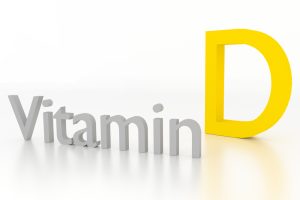 It is very important for our bodies to have a sufficient amount of vitamin D all year long, especially during the upcoming winter months.
It is very important for our bodies to have a sufficient amount of vitamin D all year long, especially during the upcoming winter months.
The body uses vitamin D to help it absorb calcium from the foods that we eat while they are in the gastrointestinal tract. Calcium is essential for maintaining bone strength, fortifying our immune system, keeping the heart healthy, preventing strokes, preventing depression, and may help with the aging process.
A great source of natural vitamin D comes from the ultraviolet B rays found in sunshine, and the more daylight we are exposed to, the more vitamin D our skin will be able to synthesize. However, during the winter months getting enough is difficult. We spend more time indoors and even when we are outdoors, we tend to wear heavier clothing which blocks the sun from hitting the skin. The best time of day to be outdoors is midday when the sun is usually the strongest. During the summer months, 10 – 15 minutes every day is usually sufficient, but during the winter months, you may require 30 minutes or more to get an adequate amount of sunlight and your daily dose of vitamin D.
Here are other sources of vitamin D that can be helpful during the year and especially during the winter:
- Eating beef liver, pork, egg yolks, and cheese
- The skin of fatty fish such as tuna, mackerel, and salmon
- Drinking milk that is fortified with vitamin D
- Taking a vitamin D3 supplement
If you would like to schedule an appointment with a physician at Flushing Hospital Medical Center to discuss your health this winter, please call 718-670-5486.
All content of this newsletter is intended for general information purposes only and is not intended or implied to be a substitute for professional medical advice, diagnosis or treatment. Please consult a medical professional before adopting any of the suggestions on this page. You must never disregard professional medical advice or delay seeking medical treatment based upon any content of this newsletter. PROMPTLY CONSULT YOUR PHYSICIAN OR CALL 911 IF YOU BELIEVE YOU HAVE A MEDICAL EMERGENCY.
